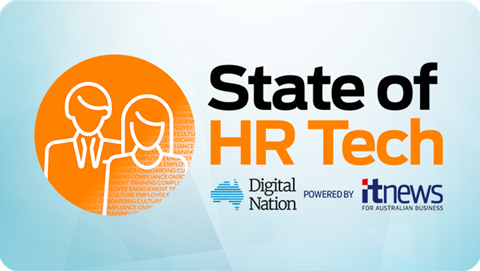Software development company X-Team has integrated Slack into its collaboration platform X HQ, to create a challenge and rewards system designed to energise its remote workforce.
Digital Nation Australia spoke to Ryan Chartrand, X-Team’s CEO, in a video case study, to understand how the business’ investment into collaboration tools a decade before the pandemic hit, meant that they were entirely prepared for the disruption.
“It was interesting because I remember at that time thinking, we should probably be doing something. But we realised, no, everything that we've been doing for the last 10 years, has really prepared us for this moment. We can actually keep our people motivated and pushing through this tough experience,” says Chartrand.
According to Chartrand, X-Team has always been a remote-first company, and currently has a team distributed across 70 countries. One of the challenges that the X HQ platform was designed to solve, he says, was the loss associated without human connection.
“Being surrounded by people is a very important energy that was lost, sort of, in that transition to remote. And so we've been trying to solve that and bring that human element back.”
The platform asks employees to participate in activities in their cities, like going for a hike or watching a new movie, and to share their experience on the Slack dashboard. These activities are designed to increase energy levels, as well as build relationships with the rest of the team.
“The coolest thing is then going into slack every day. And seeing this giant stream of posts from people doing things that energise them doing things that inspire you to want to go do those.”
Chartrand says employees are incentivised to engage with the platform through rewarding participation with digital coins that allow individuals to purchase company merchandise or donate to charity. During COVID, Chartrand explains that this was a key motivator for many employees around the world who were looking for ways to help in the crisis.
“We used that opportunity to actually raise tens of thousands of meals for food banks around the world during COVID, which was such a cool way to have people doing things that energise them, and then that getting translated into actually doing good in the world and helping people through that are struggling in much bigger ways.”
Despite the platform’s success, Chartrand reminds us that Rome wasn’t built in a day, and employee engagement takes effort and time.
“Any sort of employee engagement doesn't happen overnight, it definitely took years to sort of get not only our platform foundations in place, but just getting the behaviour and getting the values and getting the culture solidified enough to be able to get people to naturally want to partake in this,” he says.
“What we see are people in the company sort of dive in and out throughout the year, some people are always engaged, other people sort of come in and out as they need it. And that's sort of I think, the way you have to look at engaging people on these platforms is, don't expect to have them always constantly engaged, what your goal really is, is to have things happening there for when they need it.”
Collaboration platform challenges and rewards employees: X-Team
Energises workforce; encourages philanthropy.
Got a news tip for our journalists? Share it with us anonymously here.
© Digital Nation
Sponsored Whitepapers

Uncomplicate IT Service Delivery with AI Agents

Getting ahead of the tech: what’s next for Australian organisations in digital transformation

Fintech compliance made fast and secure

How to evaluate SIEM solutions Safeguarding your future Get a demo Download guide

2025 Security operations insights: Three-quarters of security leaders need something new in SIEM


_(20).jpg&h=140&w=231&c=1&s=0)



 iTnews Benchmark Awards 2026
iTnews Benchmark Awards 2026
 iTnews Executive Retreat - Security Leaders Edition
iTnews Executive Retreat - Security Leaders Edition
 iTnews Cloud Covered Breakfast Summit
iTnews Cloud Covered Breakfast Summit
 The 2026 iAwards
The 2026 iAwards












_(1).jpg&h=140&w=231&c=1&s=0)



